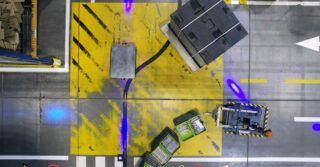Piotr Kaźmierczak is a man who co-created the history of Volkswagen production in Poland from the very beginning. He has a badge number 2. Today he manages Zakład Zabudów Specjalnych, whose main task is to adapt base cars to the individual needs of customers. It is here that serial caddies or T5 transporters undergo a metamorphosis in order to find their way to the equipment of the police, army or post office. But not only. The customer portfolio includes many private companies and individual customers which, by adapting a series car, increase its usability without losing the warranty. Mariusz Krysiak talks to Piotr Kaźmierczak, head of the Special Building Works of Volkswagen Poznań.
What is your role in the VW Group?
To put it simply, we do all kinds of rebuilds here that are simply not worth doing in the series. In Antoninek, a ready-made car leaves the line every two minutes. In these two minutes, the employee assembles various things. If it needs six minutes, three workers have to be set up. If, during this assembly, one bothers each other, e.g. by installing a two-meter-long strip, then you need to think about another organization of production in order to reduce waste. This need resulted in the establishment of our plant. The production here is organized in the so-called boxes. The car enters the stand and remains there until the employee assembles all the elements required by the customer. It may take 10 minutes, maybe three hours, there are also examples of superstructures exceeding 50 hours, but then we try to organize a pseudo-line and, unlike serial production, the delay does not bother others. Of course, we also organize production so as to optimize the entire process as much as possible, but we do not have the same limitations as in the main plant for assembly line production. We can afford more in this respect.
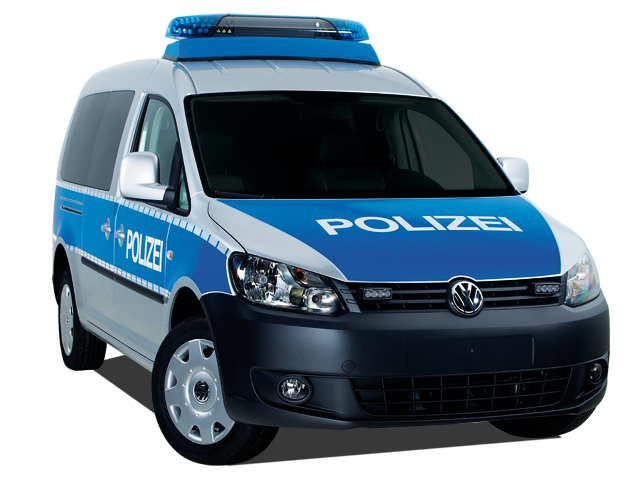
Okay, but a customer can buy a serial car and then ask a company not related to Volkswagen to modify it. I think he will get this service a little cheaper …
Perhaps. We serve customers who want to pay a little more, but not have to deal with many problems later. The point is that Volkswagen is entirely responsible for the vehicle we have modified. Let’s take the LPG installation, which is very popular in our country. Everything is fine as long as the installation works flawlessly. If something goes wrong, then a scuffle begins about whose fault it is – the car manufacturer, LPG manufacturer or the installer himself. We do not have this problem. One entity is responsible for everything – the dealer. They value this approach very much in Germany. In Poland, this approach can also be noticed with larger – fleet – purchases. This is for a simple reason. The customers simply have fewer problems in the future, which translates into lower operating costs. In other words, with a large number of cars, the investment in quality more than pays off.
Can you convert a car other than a Volkswagen vehicle at your plant?
No. At the moment, we specialize in two types of cars – Caddy and Transporter – and in the future there will be also a crafter. In this case, when it comes to redevelopment, we can afford a lot.
Lots of… what does that mean?
Our showrooms offer a catalog of the cabinets that we propose. For example, we are known for the interesting cars we produce for the German police. Their design has changed over the years, also due to the observations of the policemen themselves. When German policemen come to us, we work together to best adapt the car to their needs. Thanks to their commitment, truly innovative solutions are created. It also happens that we prepare a prototype for them, and they use it to indicate what can be done better. For example, they propose improvements to the transport of police dogs. The Polish policemen who saw it were impressed. They often carry the dogs in the trunk and they have to be very careful not to beat the dog on corners, not to mention chasing … Our modifications protect the dog from being beaten up, and additionally are very comfortable for him.
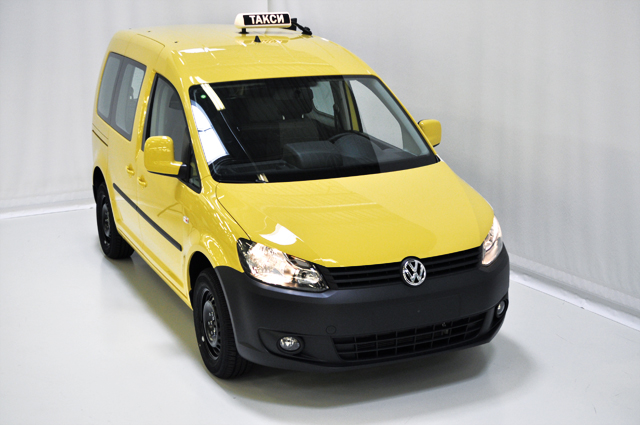
If they were impressed, they will probably order one too soon.
It’s not so simple. Our services replace cars once every 10 years. We had the last big contract for Polish police cars based on the T4 transporter in 1992. From that moment on, new contracts were signed, but not with us. These cars still serve police officers and can still be seen on the streets. In Germany, state services replace cars every few years. Generally, about 95% of our production is exported, mainly to Germany, where caddy is very popular. The remaining 5% stays in the country. We also make a tramper to Australia, several hundred taxis produced by us drive around the Bulgarian capital. There are orders from Austria. As for Poland, we have recently completed an order for Kompania Piwowarska. 200 cars. Now we have a large order from the German post office. Hence a lot of yellow cars today. We adjust and glue them so that they are useful and meet not only the visual standards of the German post office. It may seem simple, but there were commissions with which we had interesting adventures …
Could you give us an example …
The matter concerns the aforementioned order for a taxi company from Sofia. The order was agreed, the delivery date was approaching and it suddenly turned out that there was the wrong writing on the car body. Everywhere, even in China, taxis simply have the word TAXI on them. However, in the case of Bulgaria, it is different. There the inscription had to be in Cyrillic. Fortunately, it was improved at the last minute. Every year, we also implement interesting ideas of our employees. We create car modifications according to their proposals. It engages the whole team a lot, motivates to action and integrates employees. And what is very important – thanks to this, they do not fall into a routine, and are really excellent constructors.
This is how cars for hunters and music fans were created, we also built a car on the basis of the Caddy, which was a proposition for a service car in the Paris-Dakar rally. There is also one caddy that serves our employees as a wedding limousine. In cooperation with colleagues from plant no. 1, we managed to extend the structure to seven meters. Then he came to us and gained bridal splendor. In the middle – poetry: a bar, leather, sofas. Now, in high season it is busy every week.
36 244 – this number is in the production hall. What does she mean?
This is our current record when it comes to car production. Last year, 36,244 cars passed our hands. In other words, every fifth car leaving the line in Antoninek was delivered to us. We introduced changes so that these serial cars could be used in the police, military and many companies from various industries. 36,244 is really a lot. A new crafter production plant will be built soon, in Września …
What does this mean for you?
This is an additional source of cars for conversion. We plan to enlarge our plant. Certainly, the production of modified versions of the crafter will allow us to break another production record.
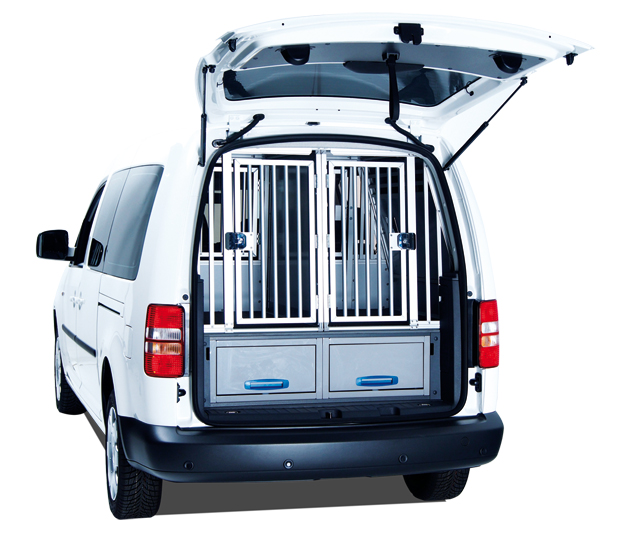
Behind you, I see a lot of books on the shelf. Six Sigma, Kaizen …
There is even a classic here somewhere – “Toyota Way”. Besides, I appreciate the books by an author named Masaaki Imai. On the occasion of various conferences, I even managed to meet him. All these books are a philosophy that works. Of course, transferring it to Polish soil does not work entirely, but the general idea is to do something better every day. Poles are used to taking big steps. Then they are satisfied. And the trick is to take small steps because it gives a much better effect over time. This is also what we do in our plant.
You said that the conversions you offer are available from the dealer in the catalog. How do you know what will work and what will not?
Colleagues next door in the office are just thinking about innovative modifications. After consulting the sales department, we either introduce these modifications to the market or not. There is also a second way. It is the client who comes to us and proposes his solutions, and we introduce them. This was the case, for example, with Kompania Piwowarska. They came, said what they wanted, and we produced 200 cars for them not available in our standard catalog.
So if a customer has a fantasy, he comes to you, and if he wants a catalog product, he goes to a dealer?
Exactly.
And what was the biggest challenge for you in terms of implementation?
I think we can boast of a tramp, because when it comes to equipment, it is quite a complicated car. When it comes to clients, institutional clients such as the German police, post office and military are the most demanding. They really order a lot of different types of cars. But all customers are heard by us and we try very hard to make them buy our cars with satisfaction.
And is it possible to return to its original state after these reconstructions?
Yes of course. The police, the army, individual companies – all sell these cars after the period of use. Therefore, they need to be designed so that they can be returned to their original state as easily as possible. That is why we do not make, for example, blue cars for the police. We make them silver and then glue them. When planning to sell a vehicle on the civil market, the stickers can be removed and it is much easier to sell such a car than a navy blue police car. Fortunately, the police also came up with this idea and are already ordering the silver ones themselves.
And if a famous Hollywood director came to you and said that he wanted to modify the car for a large film production …
The first answer would be yes. Then we would make a valuation. If the price matched the customer, we would go to work. It should be emphasized that with each of our conversions, we also take care of the fact that such a car is approved for traffic.
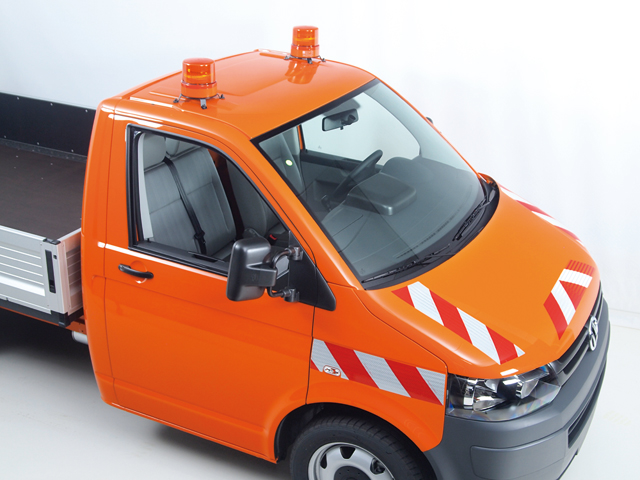
What are you most proud of?
From good contact with employees. People are very versatile and really creative. We have a small crew – there are less than a hundred of us – and we can do great things and earn a lot of money. I am also proud that I have been working in this company for over 20 years. I started with tarpans, long before Volkswagen came… I would like to thank everyone I have met on my professional path. I graduated from the Poznań University of Technology in 1974, and I wrote my master’s thesis at the request of the then Agricultural Automobile Factory. The subject was precisely the tarpan. I had an excellent teacher, Mr. Teodor Dolata. It is to him that I mainly owe what I am an employee, what contacts I have with my colleagues, as well as knowledge about what values are the most important in managing people. If you find such a mentor, you can achieve a lot.


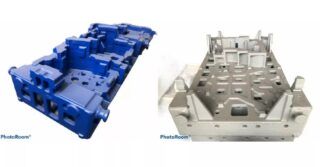
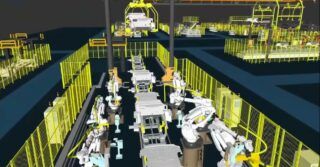
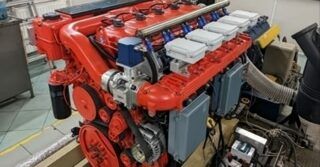

![The importance of artificial intelligence in transport and automotive industry is growing [REPORT] The importance of artificial intelligence in transport and automotive industry is growing [REPORT]](https://industryinsider.eu/wp-content/uploads/xcity-320x167.jpeg.pagespeed.ic.xFkQdk7qXO.jpg)
